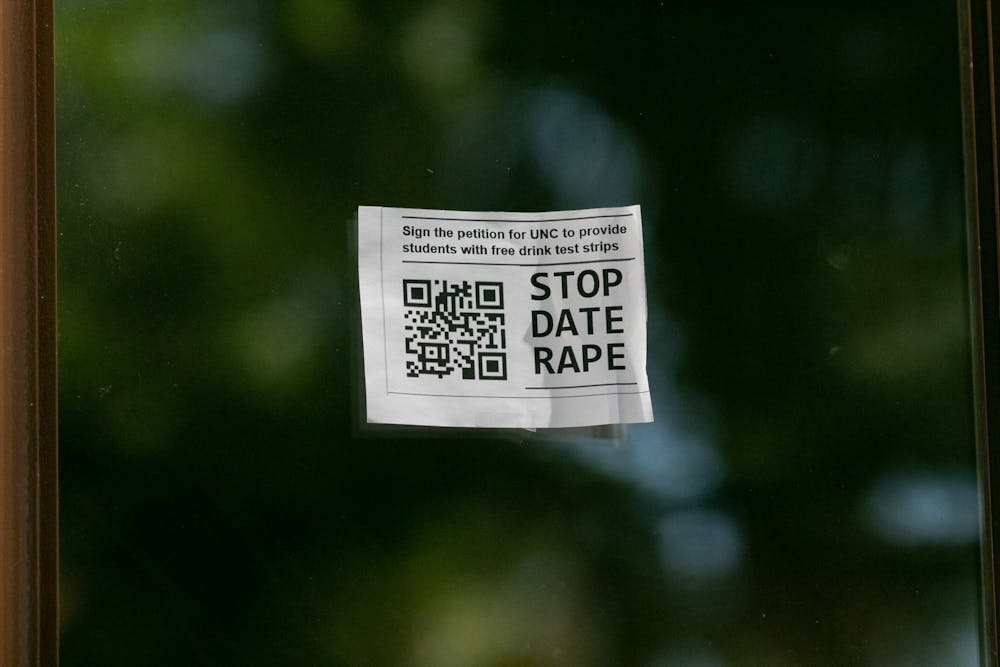Content warning: This article contains mention of rape and sexual assault.
*
*
*
On August 26, two incidents of drink tampering and one report of physical assault were reported by UNC Crime Alert at the fraternity Pi Kappa Phi.
The UNC community was alerted of this incident on Sept. 15 out of compliance with the Clery Act, according to the Alert Carolina notification. That was all that was done.
In November, Cornell University suspended all fraternity events following one report of sexual assault and four other reports of drink tampering.
Two reports of drink tampering and one report of physical assault — and likely others that have not been reported or disclosed due to privacy laws — and UNC merely sends a text notification nearly three weeks following the incident.
Cornell’s decision was made by their student-led Interfraternity Council in an emergency meeting. While it’s important to note that Cornell is a private institution, it remains true that neither the University or UNC’s Interfraternity Council have sought similar emergency action to deal with this crisis.



